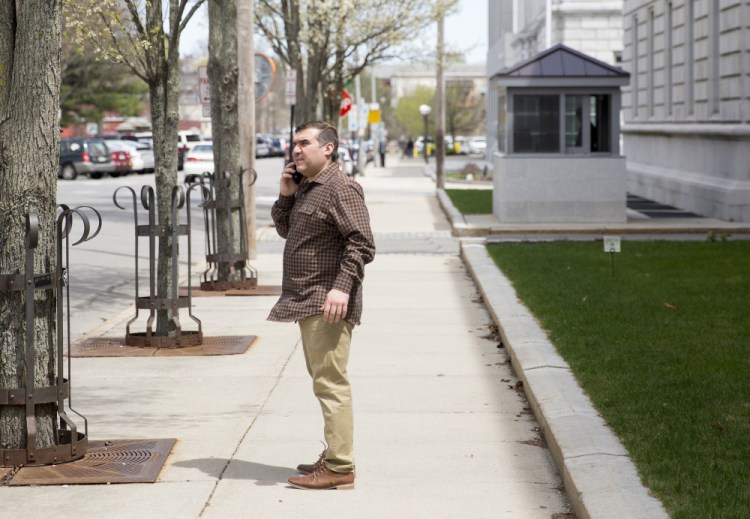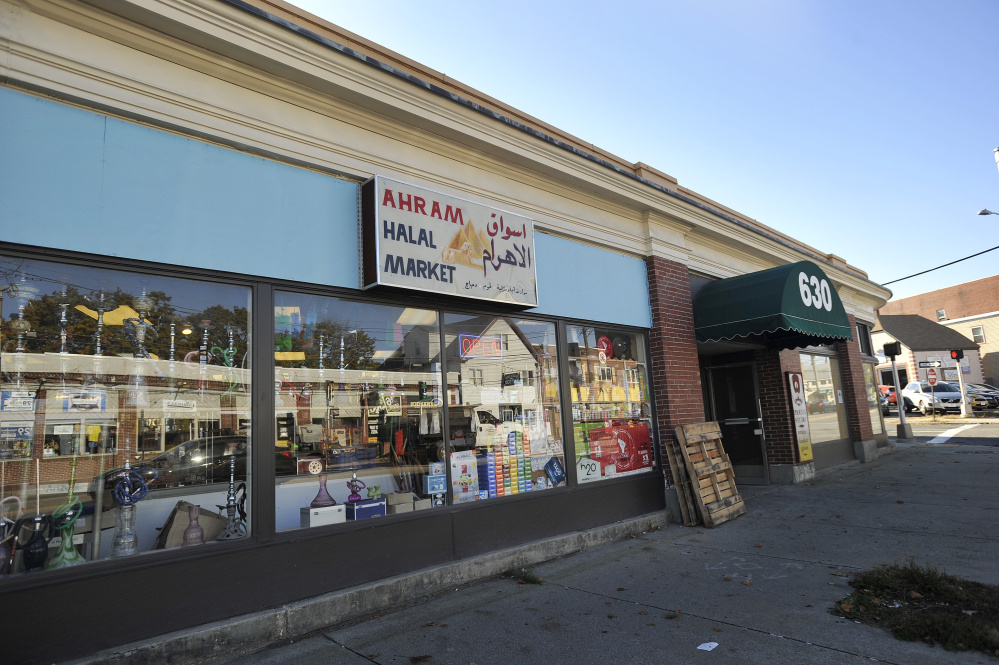Two brothers from Westbrook accused of defrauding the federal government of welfare benefits in an alleged cash-back scheme perpetrated at a Portland market have pleaded not guilty in U.S. District Court in Portland.
Ali Ratib Daham, 40, who owns the Ahram Halal Market at 630 Forest Ave., and his brother, Abdulkareem Daham, 21, were each released on unsecured $25,000 bonds after entering their pleas before U.S. Magistrate Judge John H. Rich III.
The men are accused of perpetrating a scheme to defraud the government of tens of thousands of dollars by using the store’s status as a federally approved vendor for the Supplemental Nutrition Assistance Program, or SNAP, and the Special Supplemental Nutrition Program for Women, Infants and Children, or WIC.
Investigators allege that between 2011 and 2016, the men allowed customers to trade their benefits for cash, with the Dahams keeping a portion of the proceeds. Customers were also allowed to swap their benefit dollars to settle store credit accounts. Ali Ratib Daham is also accused of stealing roughly $39,000 from the SNAP program and the state’s low-income medical insurance program, MaineCare, for failing to disclose his full income with the Maine DHHS.
The store remains open and is still owned by Daham.
Investigators became interested in the business after they discovered that Ahram Halal Market, which has one cash register, was processing nearly the same amount of SNAP transactions as the flagship Hannaford supermarket on Forest Avenue.
In budget year 2015, the Hannaford store recorded $298,706 in SNAP transactions, while Ahram Halal Market recorded $268,047 in the same period.
Federal officials were first tipped off to the suspicious activity by state DHHS fraud investigators.
In an indictment handed up April 25, Abdulkareem Daham faces one count of conspiracy.
The maximum penalty if he is found guilty is five years in prison, up to a $250,000 fine or both.
Ali Ratib Daham, meanwhile, faces 25 counts, including conspiracy, WIC and SNAP benefit trafficking, theft, wire fraud and money laundering. For those charges, he faces maximum penalties of five, 10 and 20 years in prison, and fines up to $250,000 for each count for which he is found guilty.
During the proceeding, both men used an interpreter and answered yes and no in English to questions from the judge.
Abdulkareem told the court he is a student at Southern Maine Community College studying business administration, and could not afford an attorney, so the court appointed Portland attorney Peter Rodway to defend him.
Abdulkareem is originally from Iraq, but is a legal permanent resident, he told the court. Rich ordered that Abdulkareen surrender his Iraqi passport before the end of business Friday.
Ali Ratib is a United States citizen, and was also ordered to surrender his passport.
Both men are scheduled for a June trial, but Ali Ratib’s attorney, Walter McKee, said he expects that date to be delayed because of the thousands of pages of documents he expects to receive.
Both men are also subject to standard bail conditions. They are not permitted to travel outside Maine without prior authorization, must refrain from committing new criminal acts and must report any contact they have with law enforcement.
During the bail portion of the hearing, there was a brief exchange between Abdulkareem’s attorney and the judge regarding his frequent use of marijuana. Abdulkareem, through his attorney, said he is a medical marijuana patient.
But because marijuana use and possession remains a crime under federal law, he will not be permitted to use or possess the drug during the time he is released on bail.
SNAP, a federal program formerly known as food stamps, is designed to raise the level of nutrition among low-income households. WIC is a federal program that provides supplemental food, health care referrals and nutrition for certain low-income women, and to infants and children as old as 5 who are determined to be nutritionally at risk.
According to the federal indictment, Ahram Halal Market opened for business in June 2011 with an inventory that consisted of breads, fruits, vegetables, meats, dairy products and canned goods. The market also sold a number of non-food items, including phone cards, over-the-counter medications, household items and hookah products.
Send questions/comments to the editors.





Success. Please wait for the page to reload. If the page does not reload within 5 seconds, please refresh the page.
Enter your email and password to access comments.
Hi, to comment on stories you must . This profile is in addition to your subscription and website login.
Already have a commenting profile? .
Invalid username/password.
Please check your email to confirm and complete your registration.
Only subscribers are eligible to post comments. Please subscribe or login first for digital access. Here’s why.
Use the form below to reset your password. When you've submitted your account email, we will send an email with a reset code.